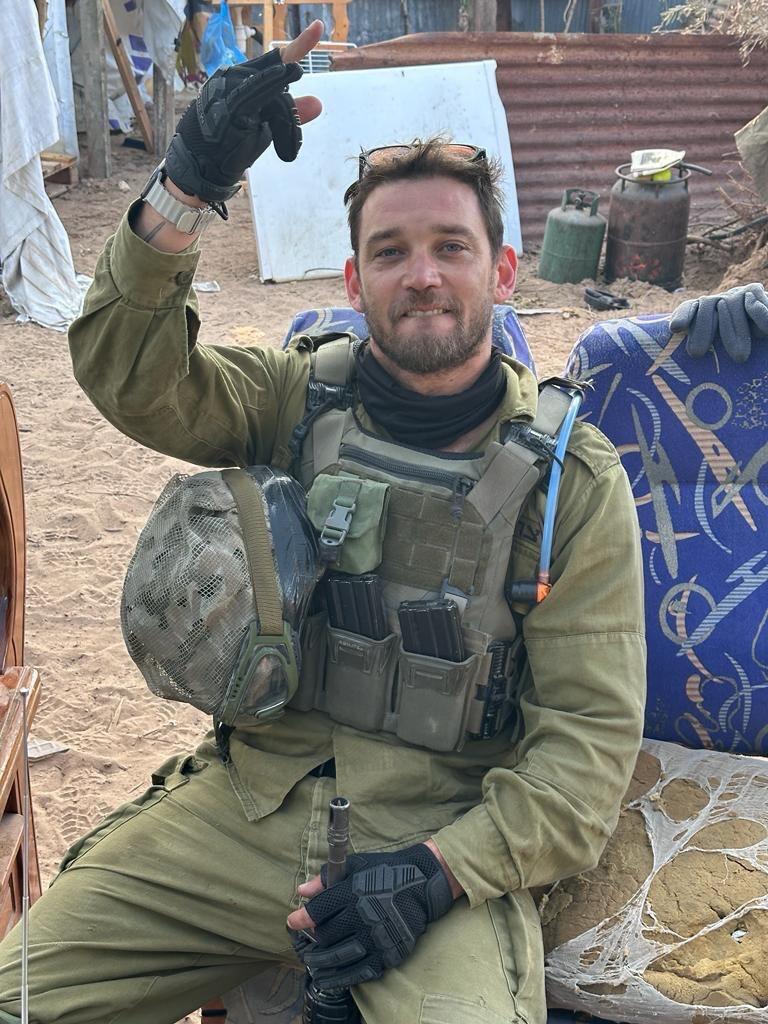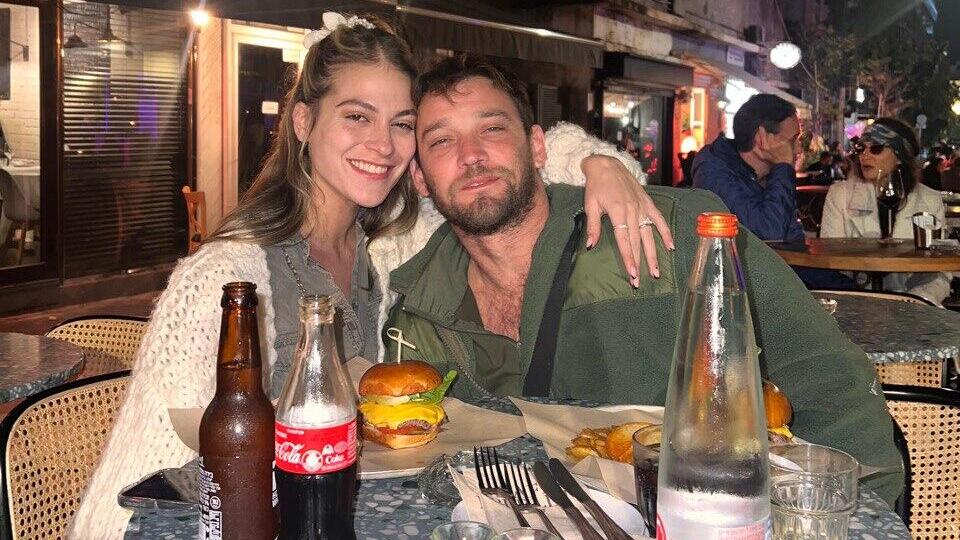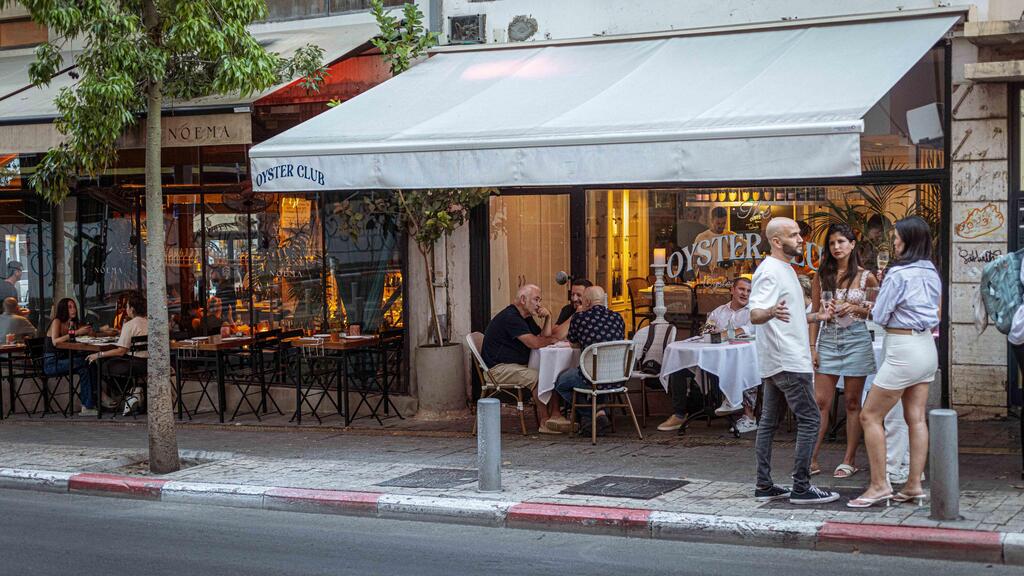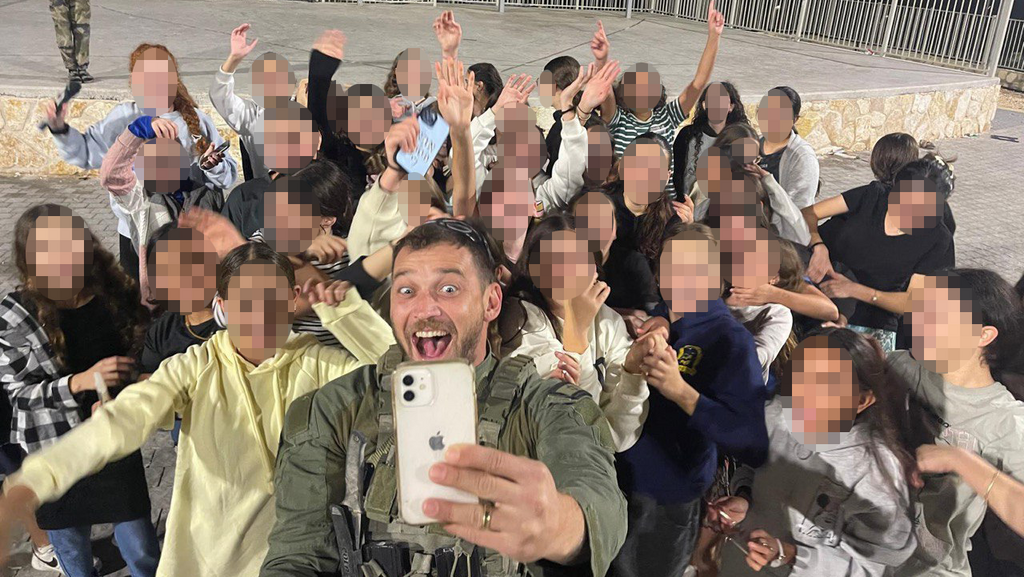Forget the polished and sharp image of actor and model Dean Miroshnikov, known for his roles in numerous TV shows and films. Over the past year, Miroshnikov has traded in his suits for IDF uniforms. In December, he volunteered for the "Magen Be'eri" Battalion (a group of veterans from elite IDF units). Since then, he's been far removed from his business ventures in Tel Aviv, including Noama, Oyster Club, and Berlin Café, which are located in the bustling nightlife center of Nachalat Binyamin.
On October 7, Miroshnikov was in South Africa filming a movie. But just a month later, he was back in Israel amid the war, and within weeks, he was in uniform, without hesitation. By December, his battalion entered Gaza, rebuilding it from the ground up. He spent most of the summer in Rafah, Gaza, with occasional short breaks at home. For almost a year, Gaza and the West Bank have been his everyday sights, though he occasionally returns for a brief respite. He spends his time off with his wife, Ani Miroshnikov, but even while holding her hand in the streets of Tel Aviv, he remains alert. In professional terms, this is called PTSD.
"When I'm in Gaza, I have a narrow field of vision. I don't need to look behind because I know someone is covering me. But when I'm walking in Tel Aviv, I always check 360 degrees, looking both ways and behind. I hold my wife’s hand and look right, then left. We were surprised once at Berlin Café during a terrorist attack in the summer of 2023, where a city security officer was killed. I feel the danger everywhere. So, when I return from reserve duty and enter the city center, the tension intensifies. I don't want to be caught off guard."
How do you transition from fighting in the heart of Gaza or operations in the West Bank to the bustling center of Tel Aviv?
"One of the reasons I serve in the reserves is because of what I see in the West Bank. Every night, we arrest people trying to harm us, infiltrate the country, and carry out attacks. If my team and I can stop even ten terrorists who could have reached Nachalat Binyamin to carry out attacks, that’s why I do it. One of my business partners, Uri Ziman, volunteers with Tel Aviv’s emergency response team; he does all the necessary training. When I return to Nachalat Binyamin and sit in the corner of the restaurant with my wife and friends, I don’t want it to end. I want tourists to keep coming to Israel. Even when I’m on reserve duty, I stay updated on everything happening with our restaurants. I’m in all the business WhatsApp groups, seeing how every missile fired from Lebanon or anywhere else is destroying businesses. There are days when people are too scared to go out, and that empties the restaurant both that evening and the next day."
Is there another place you'd consider calling home?
Miroshnikov, 36, was born in Ukraine and immigrated to Israel at the age of nine. He has spent the past six years traveling across the country, giving motivational talks to youth. He’s about to celebrate his 1,000th lecture. As a disabled IDF veteran, Miroshnikov was not required to serve. In 2010, while serving in Shayetet 13, he was injured during the Gaza flotilla raid. Fourteen years have passed since that day, but the memories remain vivid.
"The reason I share my story with students is that I turned it into a tool," says Miroshnikov. "I had PTSD that used to take over and make me angry at the world. I was ashamed to go to therapy and ask for help. But eventually, I did, and I’m still in the process. At some point, someone suggested I give lectures. They heard I was an actor and had served in Shayetet. The first time I spoke, I told the story of the Mavi Marmara. From there, I built a lecture where I explained what happened, but also what it’s like to be an immigrant in Israel and why serving in the IDF was important to me. PTSD is about disorganized thoughts, but when I build a story and know exactly what happened from the moment we were called to the helicopter, it helps. I bring order to my thoughts, and when I tell the story, I feel like I’m turning on a light switch. I turn it on, and by the end of the lecture, I switch it off and don’t think about it anymore. I think we’re all living in a post-trauma state as a nation. If someone feels the need to talk to someone, that’s okay. It doesn’t always have to be a psychologist; sometimes writing it down or recording and listening later can help too."
You volunteered to go to war, even though as a disabled veteran, you weren’t obligated. What was your motivation?
"Listen, no one is obligated. Some people tell me straight to my face, ‘I don’t care, I’m not enlisting.’ But what about my commander, a 49-year-old man with a business, a family, and kids? Does he have to enlist in the war? He came here, didn’t sleep at night, and we went into villages to do what needed to be done. If we don’t do this, there won’t be a country."
Miroshnikov’s motivation changes depending on the situation. "At first, I said there’s no way I’m not going to be part of this. I’m a commando, and I do whatever is needed, especially when soldiers are lacking. I won’t sit on the sidelines in a situation like this. Now, I’m here for my friends in the battalion, for the people who get to go home once in a while."
Get the Ynetnews app on your smartphone: Google Play: https://bit.ly/4eJ37pE | Apple App Store: https://bit.ly/3ZL7iNv
"I made Aliyah because there’s no other home for us. We came from Ukraine to Ashdod. I see the world divided between good and evil, and I understand that we need to protect this place. Otherwise, that spot on the map will be covered with black dust, and the Middle East will be lost. We strike in Syria, Lebanon, Iran, and Gaza. We protect the good and the beautiful heart that has to keep beating. If we don’t, the world will go mad."
Where do you find your optimism?
"Last week, on one of the nights, we went on an attack mission in the West Bank. Before that, we toured Jewish and Palestinian villages. Suddenly, we saw a group of girls in one of the moshavim. Without thinking twice, we jumped out of the jeep and danced with them. They recognized me, and the whole team burst out laughing. It was a joyful moment, and it gave us incredible energy before heading out on a mission. We felt we had brightened the day of those we were about to protect. That’s an amazing power. Then I came back to Tel Aviv, to my restaurants in Nachalat Binyamin, proud, knowing deep down that I did something good. It’s an incredible feeling."





